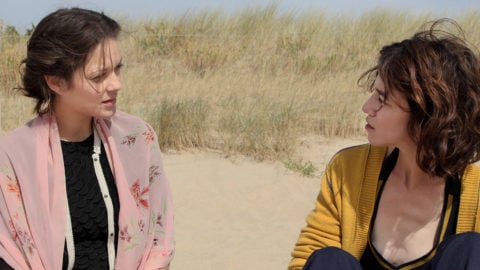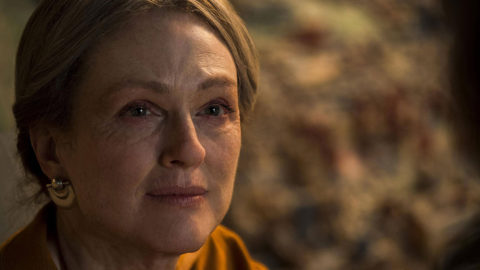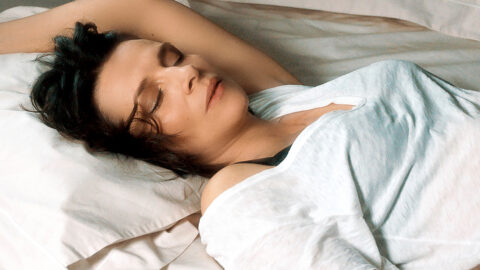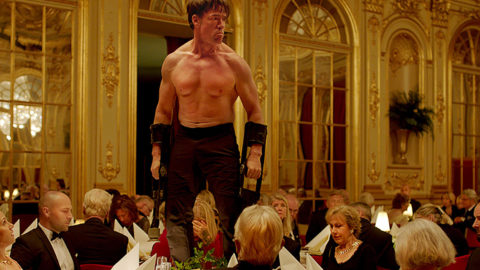Cannes Dispatch: Hip to Be Square
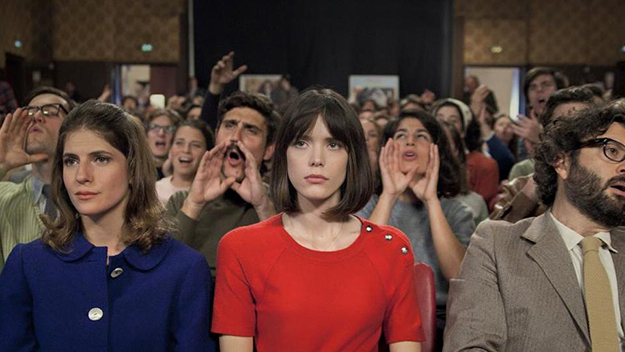
Redoubtable
One of the most anticipated titles going into Cannes this year was Ruben Östlund’s The Square, which (no pressure) press-screened in the same slot as 2016’s Toni Erdmann. Östlund’s surgically precise prior feature Force Majeure dissected masculine weakness and the ready cycle of recrimination in a picture-perfect Swedish family on a ski trip. Speculation was rife on what The Square might contain. The two-hour-and-20-minute film turned out to be a shaggy satirical comedy about Christian (Claes Bang), the chic curator of an art museum, toggling among mortifying story lines: a one-night stand with lingering consequences, a nastily conceived ad campaign for a hot new exhibit (the titular “square,” an artwork creating a kind of ethical safe space), and a positively unbelievable outreach effort to retrieve a stolen wallet and other items.
Much of this is funny, some of it clever, though only rarely does the film get as unsettling as Östlund’s previous studies of societal deterioration (chiefly during a charity banquet terrorized by a performance artist run amok). But most surprising, and little remarked upon, was the reactionary bent of Östlund’s satire. Let’s set aside the fact that the art world has been parodied, and has parodied itself, to such an extent that even the film’s best-tuned gags can feel familiar. More tiresome is that Östlund, in targeting liberal Swedish guilt, all too often evokes a disgruntled middle-aged man’s cynicism about contemporary values of sensitivity and tolerance. Among the figures of fun are a bossy beggar who specifies what sandwich Christian should buy for her; a man with Tourette’s who keeps interrupting a museum Q&A with obscenities that sound directed at the host; a work colleague who brings a baby to every meeting; and an inconsolably aggrieved boy of foreign descent who hounds the curator over a perceived insult. It doesn’t help that the film’s dramatic climax leans on an offensive ad “going viral”—the go-to plot device that reliably makes a screenplay feel granddadian.
Only one night later Cannes screened another highly anticipated film with dubious intentions that all the yuks couldn’t drown out. Mocked (fairly or not) long before its premiere and deemed as obligatory viewing, Michel Hazanavicius’s Redoubtable is something nobody was asking for: a Jean-Luc Godard biopic—well, at least one year’s worth, specifically his turning-point of 1967. Louis Garrel dons permanent shades and doffs all sex appeal to become JLG amid upheaval in Paris, Cannes, and his career; Stacy Martin, devoid of screen magnetism that might have been useful, plays his amour, Anne Wiazemsky (whose memoir supplied fodder for the film). Redoubtable—aka Oh, Lighten Up, Jean-Luc!—leans on JLG taking himself and his work far too seriously and being a jealous, oblivious jerk. “You’re not the man I married!” pouts Anne.
Academy Award winner Hazanavicius knows how to do light comedy, harkening back to the easy charms of The Artist and the OSS 117 series. Here, he dutifully deploys a textbook running gag (Godard’s glasses repeatedly get broken). But there’s a not-so-hidden edge to all this: JLG’s political positions are depicted as fundamentally a drag, and his ability to argue them often exposed as limited. (Not to mention that the arc of the story makes it sound as if Godard directed no films of note after his political turn with Dziga Vertov Group.) It’s a little hard to watch a master filmmaker mocked for being self-serious by a director coming off a self-serious turkey called The Search, lambasted at Cannes in 2014. One might see a kind of creative revenge going on: Hazanavicius has his cake and eats it too by taking a wildly experimental and politically fearless filmmaker down a peg, all while directing a successful crowd-pleaser. The Artist, indeed.



